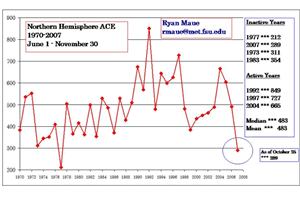This was a response to the comments on an earlier post of his where I argued that the important skills shortages aren't in occupational skills, the need for which is hard to predict, but basic social and intellectual skills. Chris responds that most unemployed people don't fit into that category at all. That I'm blaming the "genuine losers from the creative destruction that is inevitable in a market economy" for their hard luck.
I think he's missed the point. He is right to note that most unemployed, or economically inactive, people do not have the social problems I'm discussing but they aren't are victims either. From the Liberal Conspiracy post:
"3. Unemployment is not a “pool” but rather the difference between two quite fast-flowing rivers. In any one month, almost a quarter of the claimant count measure of unemployed leave or join the count (table 10). If they’re so idle, how come so many of the unemployed leave the register so quickly?"
I had a period like this after I left university (I didn't claim unemployment benefit but that's not particularly crucial to this debate). My skills would have been more than sufficient to secure a quite respectable job immediately but instead I was not employed for a bit and found a job I really wanted. I'm quite pleased with the way things have turned out. This is quite normal and the source of most unemployment (most of the unemployed could find "a job").
I wasn't a victim. Neither are most of the short-term unemployed. Short-term unemployment only becomes a real problem when a mess of a benefits system undermines the incentives that encourage people to be a bit flexible about the kind of job they will accept. That turns short-term joblessness into long term unemployment.
I still think I was focussed on the right problem in my original comment. Shortages of basic skills (those you can easily predict an ongoing need for) don't just create unemployment, after all:
1) They are spread out across the unemployed, those on incapacity benefit, those economically inactive and - more than anything - those in low value and patchy employment.
2) They have particularly pernicious effects. Young people have the potential to stay in long-term unemployment for longer, are more likely to have dependent children and are more likely to spend their free time making other people's lives a misery. I'm not saying unemployment among the over fifties doesn't matter. It does and we clearly need to do some serious thinking about how we improve opportunities for older people. However, long-term youth unemployment creates more problems for more people.
3) Long-term youth unemployment is the most relevant to demand for migrants. A failure to consider which shortages migrants can effectively fill is, I think, the big flaw with Chris's original post.
Most vacancies are just as temporary as most unemployment. How many of the vacancies that Chris used to justify an economic need for immigration would be filled within days, weeks or months?
Imagine what would happen if migration were used to fill short-term vacancies in a dynamic labour market:
Day One: Large number of vacancies. Immigrants respond to the demand and enter the UK labour market.
Day Two: Whole new load of vacancies. New immigrants enter the labour market. Immigrants from Day One and earlier run a similar risk of becoming unemployed to the indigenous population.
This process continues ad infinitum. If the labour market needed immigrants to fill short-term vacancies it would need immigration on an unimaginable scale. I doubt you could even get the immigrants here in time to significantly shorten the length of the vacancy.
Migration only really makes sense if it is responding to a medium to long-term demand for labour. Young people are the ones who really compete with long-term immigrants. It is their lack of basic skills that makes them unable to fill junior positions and creates a demand for mass-immigration. As such, if British young people were more employable there would be less demand for migrant labour. Some of the demand that migrants fill could be filled with domestic workers if they could be provided with skills that we can predict a need for.
None of this is particularly important to my own thinking on immigration. I'll set that out another time. However, I do think it is important to understand the trends driving economic demand for migrants and I'm not sure Chris's focus on shortages of occupational skills can facilitate such an understanding.



 Next, Limavady have a web tool I've seen on a few council sites. Basically it reads whatever you mouseover. Who is that catering for? If you're a blind person surely you aren't able to mouseover things so that they are read to you. The only people I can think of who could use such a tool are the extremely dyslexic and illiterate. If anyone knows I'd love to know who it is targetted at.
Next, Limavady have a web tool I've seen on a few council sites. Basically it reads whatever you mouseover. Who is that catering for? If you're a blind person surely you aren't able to mouseover things so that they are read to you. The only people I can think of who could use such a tool are the extremely dyslexic and illiterate. If anyone knows I'd love to know who it is targetted at. 

















